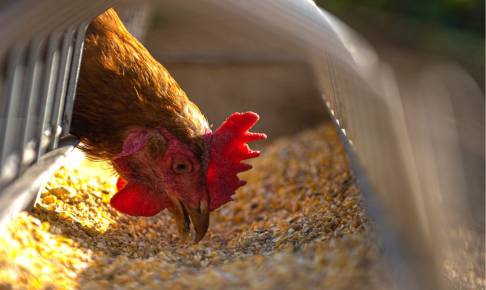Investigations on board: experiences and challenges
Globalization has increased the international circulation of commodities. For some of these commodities, globalization has meant the establishment of supply chains due to the characteristics of the products themselves, their chemical-physical properties, and transport conditions. Because of this, more than ever before, some food contaminants have become global threats.
However, poor harvesting practices and improper processing, packaging, drying, and transportation influence fungal growth and increase the risk of mycotoxin production (Pitt et al. 2013). Cereals, oil seeds, spices, nuts, and coffee are some of the most important commodities commonly contaminated with mycotoxins. Given the size of the global market for these commodities, global trade poses important challenges for food security. For example, in 2018, the last year for which data are available, the global cereal crops industry had total revenues of USD 681.5 billion and the dried fruits market was valued at USD 4.7 billion and by the end of 2019, the global seasoning and spices market was valued at USD 16.6 billion.
Many countries have developed their own legislation to set maximum limits for mycotoxins in food and feed products. Some countries, however, rely on the Codex Alimentarius guidelines. As a result, there can be a significant disparity between the limits in different countries. There is also often a significant difference in the numbers and types of controls that certain legal frameworks impose on traders. For example, in Europe, controls are carried out on 5% of incoming food commodity consignments but some goods from some countries are controlled 50% or even 100% of the time.
Because of the risks associated with the above- mentioned commodities, it has become essential for traders to prevent border rejections.
Because of the growing value of these markets and the risks associated with the above-mentioned commodities, it has become essential for traders to prevent border rejections when consignments are controlled by import authorities. To avoid difficult and expensive disputes between traders and customers Grain and Feed Trade Association (GAFTA) and the Federation of Oils, Seeds and Fats Associations (FOSFA) has developed special contracts. The contracts drawn up by the London-based GAFTA are one of the most widely used tools at the international level to regulate the purchase and sale of cereals. These contracts are updated regularly, are specially prepared for international sales (so as to exclude the application of international conventions and community regulations), and are strictly enforced by the Arbitration Chamber set up by the association, the only ruling body competent to decide to any controversy inherent to and connected to them. The regime for reporting and checking for defects in goods and for enforcing penalties is strictly regulated.
The purpose of FOSFA certification, on the other hand, is to ensure the safe handling and preservation of the integrity of the cargo to which the contract relates, and avoid contamination incidents that, while problematic in the 1980s, have mostly been eliminated. These inspections are carried out by third-party and independent bodies that can g
Download content now





















